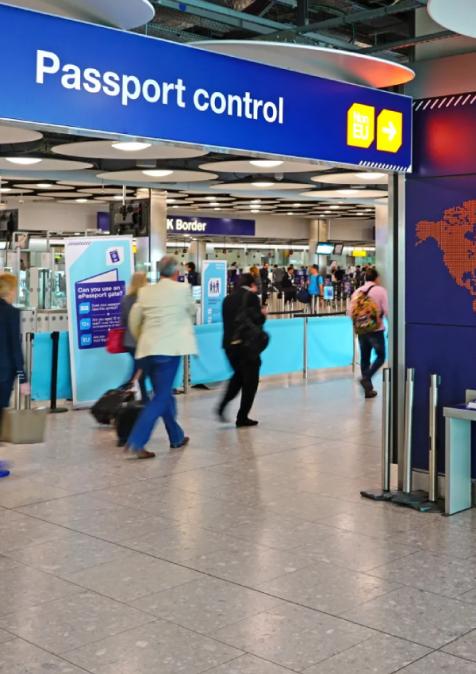Paul-Simon Handy, Regional Director for East Africa and Representative to the African Union, delves into the complexities of mediation in internal African conflicts. Despite half of the UN peacekeeping forces being deployed on the African continent, sustainable peace remains elusive. Mr Handy explores the reasons behind these challenges, shedding light on the intricate dynamics and obstacles that hinder effective conflict resolution.
RELATED CONTENT
-
October 11, 2023Moderator - Harinder Kohli, Founding Director and Chief Executive, Emerging Markets Forum (EMF) Speaker - Hiroshi Watanabe, President of Institute for International Monetary Affairs ...
-
October 10, 2023Chair - Karim El Aynaoui, Executive President, Policy Center for the New South (PCNS) Discussants - Erik Berglof, Chief Economist, Asian Infrastructure Investment Bank (AIIB) - Roberto de Ocampo, Chairman and CEO, Philippine Veterans Bank - Roberto de Oliv...
-
October 10, 2023Session d'ouverture : Remarques préliminaires des coprésidents - Montek Singh Ahluwalia, ancien vice-président de la Commission de planification de l'Inde - Karim El Aynaoui, président exécutif, Policy Center for the New South (PCNS) - Enrique Garcia, ancien président et directeur gé...
-
October 10, 2023Président - Karim El Aynaoui, président exécutif, Policy Center for the New South (PCNS) Discutants - Erik Berglof, économiste en chef, Banque asiatique d'investissement pour les infrastructures (AIIB) - Roberto de Ocampo, Président-directeur général, Phili...
-
October 10, 2023- Montek Singh Ahluwalia, Former Deputy Chairman, Planning Commission of India - Karim El Aynaoui, Executive President, Policy Center for the New South (PCNS) - Enrique Garcia, Former President and CEO, CAF - Development Bank of Latin America - Harinder Kohli, Founding Director and C...
-
 AuthorsOctober 9, 2023This paper was originally published on mdpi.com The labor market can be a daunting place for young graduates; this paper aims to shed light on how they navigate it. By examining the ways in which they enter the workforce and the impact of individual and socioeconomic factors on their career paths, we gain a deeper understanding of the challenges they face. We use a two-stage approach to study this issue: first, we create a typology of graduates’ integration paths and then estima ...
AuthorsOctober 9, 2023This paper was originally published on mdpi.com The labor market can be a daunting place for young graduates; this paper aims to shed light on how they navigate it. By examining the ways in which they enter the workforce and the impact of individual and socioeconomic factors on their career paths, we gain a deeper understanding of the challenges they face. We use a two-stage approach to study this issue: first, we create a typology of graduates’ integration paths and then estima ... -
 AuthorsFederica AlfaniDominique FayadGregory AuclairDániel BaksaHippolyte BalimaDavid BartoliniChakib BenmoussaOlivier BizimanaAleš BulířMoëz CherifFabio ClementiAnanta DuaJavier Díaz-CassouMichele FabianiLisa KolovichChiara MaggiCarole MegevandVasco MoliniAnta NdoyeLorraine OcamposMaximilien QueyranneFrancisco RochEnzo ValentiniOctober 9, 2023This book was originally published on elibrary.imf.org Throughout the past two decades, Morocco has faced several external and domestic shocks, including large swings in international oil prices, regional geopolitical tensions, severe droughts, and most recently the impact of the pandemic and the economic fallout from Russia’s invasion of Ukraine. Despite rough waters, the government stayed the course and remained focused not only on immediate stability, but also on the long-ter ...
AuthorsFederica AlfaniDominique FayadGregory AuclairDániel BaksaHippolyte BalimaDavid BartoliniChakib BenmoussaOlivier BizimanaAleš BulířMoëz CherifFabio ClementiAnanta DuaJavier Díaz-CassouMichele FabianiLisa KolovichChiara MaggiCarole MegevandVasco MoliniAnta NdoyeLorraine OcamposMaximilien QueyranneFrancisco RochEnzo ValentiniOctober 9, 2023This book was originally published on elibrary.imf.org Throughout the past two decades, Morocco has faced several external and domestic shocks, including large swings in international oil prices, regional geopolitical tensions, severe droughts, and most recently the impact of the pandemic and the economic fallout from Russia’s invasion of Ukraine. Despite rough waters, the government stayed the course and remained focused not only on immediate stability, but also on the long-ter ... -
Helmut Sorge & Abla Abdel LatifOctober 06, 2023The confluence of Covid 19 and the ongoing war between Russia and Ukraine has resulted in a troublesome surge of inflation not seen for decades. Developing nations, particularly in Africa ...
-
AuthorsOctober 6, 2023This paper reviews the past performance of industrialization in Africa and identifies key considerations for policymaking. To date, African countries have lagged in industrialization compared to other continents, in spite of the determined efforts and aspirations of their leaders. However, recent evidence suggests that Africa’s de-industrialization trend began to reverse in the past decade, with some countries experiencing growth in manufacturing employment. Notably, more jobs have ...
-
 AuthorsAlberto TagliapietraOctober 5, 2023This brief was originally published in gmfus.org The EU is increasing, at home and abroad, its use of state-of-the-art technologies in its border management. But guarantees of their consistently appropriate use are lacking. Migration increasingly involves digital tools. Internet, smartphones, and social media are of paramount importance for people on the move. Border management is also becoming more digitalized, with technological tools being used to accelerate legal internatio ...
AuthorsAlberto TagliapietraOctober 5, 2023This brief was originally published in gmfus.org The EU is increasing, at home and abroad, its use of state-of-the-art technologies in its border management. But guarantees of their consistently appropriate use are lacking. Migration increasingly involves digital tools. Internet, smartphones, and social media are of paramount importance for people on the move. Border management is also becoming more digitalized, with technological tools being used to accelerate legal internatio ...




